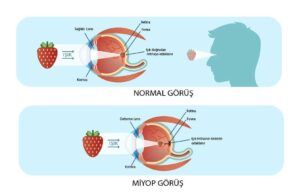
Secrets of Healthy Weight Loss?
The Science of Weight Loss: Understanding the Physiology Behind Successful Weight Loss , Weight loss is a complex process that involves a combination of physiological, psychological, and environmental factors. While the formula for weight loss is simple – burn more calories than you consume – the science behind it is much more complicated. In this article, we will explore the physiology behind successful weight loss and how it impacts your body.
The Physiology of Weight Loss: When you eat food, your body breaks it down into its component parts – carbohydrates, fats, and proteins – and converts them into energy. This energy is used by your body for various functions, including movement, breathing, and digestion. The energy that is not immediately used is stored in the body as fat.
When you consume fewer calories than your body needs, it begins to use the stored fat as energy. This process is called lipolysis, and it is the basis of weight loss. Lipolysis occurs in the adipose tissue, which is the fat-storing tissue in the body. The adipose tissue is made up of cells called adipocytes, which store and release fat.
When your body needs energy, the adipocytes release fatty acids into the bloodstream. These fatty acids are then transported to the muscles, where they are burned for energy. As your body burns more fat than it stores, you begin to lose weight.
However, weight loss is not just about burning fat. It also involves preserving muscle mass. When you lose weight, you inevitably lose some muscle mass along with the fat. This is because your body needs a certain amount of energy to maintain muscle mass, and when you are in a calorie deficit, your body will use some of the energy from your muscles.
To prevent this from happening, you need to engage in resistance training, such as weightlifting. Resistance training helps to build and maintain muscle mass, which in turn increases your metabolism. This means that you burn more calories even when you are at rest.
Hormonal Factors: Hormones play a significant role in weight loss. There are several hormones that affect your appetite and metabolism, including leptin, ghrelin, insulin, and cortisol.
Leptin is a hormone that is produced by adipose tissue. It helps to regulate energy balance by suppressing appetite and increasing metabolism. When you lose weight, your body produces less leptin, which can make it more difficult to maintain weight loss.
Ghrelin is a hormone that is produced in the stomach. It stimulates appetite and promotes fat storage. When you are in a calorie deficit, your body produces more ghrelin, which can make it harder to stick to a calorie-restricted diet.
Insulin is a hormone that regulates blood sugar levels. When you eat carbohydrates, your body produces insulin to help transport glucose into the cells for energy. When you are insulin resistant, your body has a harder time using insulin effectively, which can lead to weight gain.
Cortisol is a hormone that is produced by the adrenal glands in response to stress. It increases blood sugar levels and promotes fat storage. When you are under chronic stress, your body produces more cortisol, which can lead to weight gain.
To optimize hormonal function for weight loss, it is important to eat a balanced diet that includes protein, fiber, and healthy fats. It is also important to manage stress through techniques such as meditation and exercise.
Weight loss is a complex process that involves a combination of physiological, psychological, and environmental factors. To successfully lose weight, you need to create a calorie deficit by burning more calories than you consume. This can be achieved through a combination of diet and exercise.
Resistance training is an essential component of weight loss, as it helps to build and maintain muscle mass, which in turn increases metabolism. Hormonal factors also play a significant role in weight loss, and it is important to eat a balanced diet and manage








